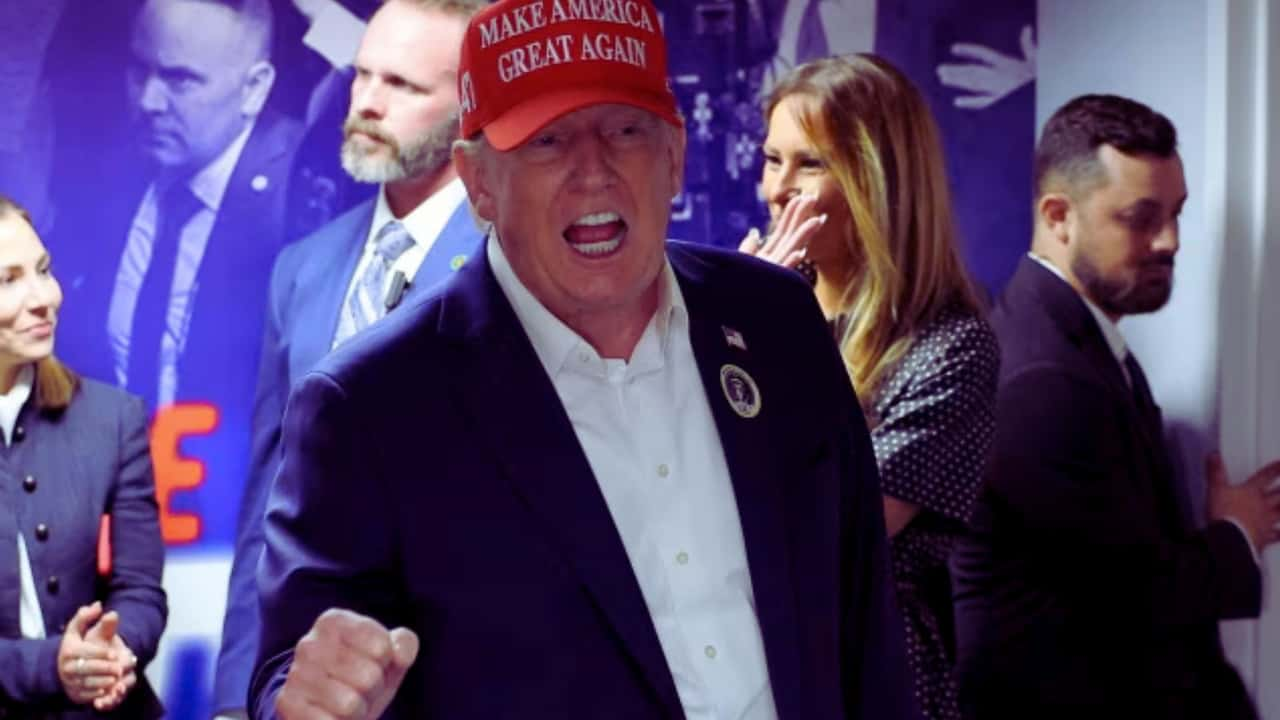Global Markets Shudder as Trump Surges Toward White House Return: Europe Braces for Potential Power Shift
In a dramatic turn of events that’s sending ripples through global markets and diplomatic circles, Donald Trump has secured crucial victories in key battleground states, marking what appears to be a clear path back to the White House. The development has sparked immediate reactions across European capitals and financial markets worldwide.
As dawn broke over Europe, Trump’s victories in North Carolina and Georgia had already triggered significant market movements, with the U.S. dollar climbing to its highest level since July. The financial tremors reflect growing certainty among traders that America’s political landscape is on the verge of a seismic shift.
European Union officials, while maintaining public composure, are quietly preparing for what could be a dramatic shift in transatlantic relations. “We are not in 2016 where Trump was a big surprise,” revealed a senior EU official who spoke on condition of anonymity. “We are more confident; we have a clear line on what is on our agenda.”
The stakes couldn’t be higher for Europe. Trump’s campaign promises have included:
- Russia is pressuring Ukraine to engage in peace negotiations.
- We are imposing tariffs of up to 20% on imports from Europe.
- Questioning America’s commitment to NATO
These pledges have caused unease in European capitals, especially as they grapple with continued support for Ukraine and growing security concerns.
Meanwhile, Vice President Kamala Harris, leading the Democratic ticket in an unexpected turn of events following President Biden’s withdrawal, faces an uphill battle. Early results show Trump maintaining leads in crucial swing states, including Michigan, Wisconsin, and Pennsylvania.
The potential power shift comes at a critical time for global security. Mai’a Cross, a prominent expert in international relations, warns of immediate consequences: “The biggest impact, besides the effect on Ukraine, would be for the Europeans. Ukraine, being a neighbor and a candidate for NATO membership, would rely solely on the EU for its support.
The market’s reactions have been swift and significant.
- The dollar surged against major currencies.
- U.S. Treasury yields jumped higher.
- European markets showed early signs of volatility.
In a parallel development highlighting Europe’s own political challenges, German authorities have arrested several individuals, including an elected official from the Alternative for Germany (AfD) party, on suspicions of forming a Nazi-inspired group. This incident underscores the rising tide of far-right sentiment that some analysts connect to broader global political shifts.
Brussels’ response remains measured but alert. EU officials emphasize their commitment to:
- Maintaining strong transatlantic relationships
- Defending multilateralism
- Supporting Ukraine
- Protecting open trade
“We should be careful and keep calm,” stated the EU official. “The lines we are working on will work for both candidates… Whether there will be 27 leaders to continue expressing this position is another question.”
The automotive industry, a crucial sector for European economies, faces additional challenges. With existing pressures from sluggish demand and fierce competition from China, the prospect of new tariffs under a second Trump presidency adds another layer of uncertainty.
Europe’s leaders prepare for a two-day summit in Budapest, where discussions of this potential power shift will undoubtedly dominate as the vote counting continues. The continent finds itself at a crossroads, balancing the need to maintain strategic autonomy while preserving crucial international partnerships.
For now, Europe watches and waits, knowing that the next few hours could reshape the geopolitical landscape for years to come. As one Brussels official noted, “The world of 2024 is not the world of 2016. Despite our preparation, the challenges remain equally daunting.
